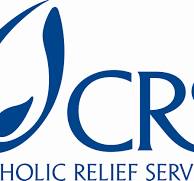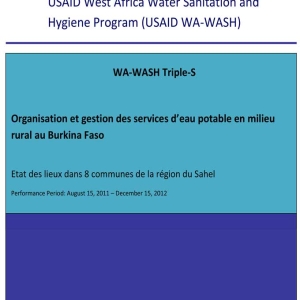Description
This document constitutes general guidelines for the planning and implementation of small-scale water supply and sanitation activities in rural East Africa, which includes both projects funded under the USAID Title II (Food for Peace) Program and projects funded by other donors. It is intended to assist CRS and its partners in improving the effectiveness, environmental protection and long-term sustainability of water and sanitation activities in
the rural, and often food-insecure, areas of East Africa.
The origin of these guidelines was a cooperative effort between the USAID Mission to Ethiopia and the non-governmental organizations (Cooperating Sponsors) participating in the Title II (Food For Peace) Program to improve water and sanitation project planning in Ethiopia. As a result of a 1999 USAID-funded field study of Title II water and sanitation projects in Ethiopia, many weaknesses in environmental protection and project sustainability were identified. To address these weaknesses, USAID sponsored a March 2003 workshop,
organized by CRS/Ethiopia and attended by all Cooperating Sponsors, to formulate guidelines for the development of rural water and sanitation projects in Ethiopia. The resulting guidelines were approved by USAID for use in Ethiopia by all NGOs working under the Title II program1.
Upon completion of the Ethiopian guidelines, CRS/EARO decided that the availability of relevant guidelines for all of East Africa would be beneficial to the development of CRS water and sanitation projects in the region. A CRS/EARO regional workshop to review the Ethiopian guidelines and adapt them to a regional framework was held in September 2003 for CRS staff and partner organizations. The regional guidelines resulting from this workshop were designed to be appropriate for all CRS rural water and sanitation projects
in East Africa, including both those funded by USAID under Title II and those funded from other sources.
It is expected that the regional guidelines presented here will be used by CRS country offices and revised, as needed, to account for conditions and requirements specific to each country. CRS country offices are encouraged to modify these guidelines to suit countryspecific needs. At the same time, it is recommended that any modifications remain within the parameters set by the Title II program, since USAID is expected to continue as a major
source of funds for CRS water and sanitation projects. And finally, the guidelines are not intended to be restrictive but rather to encourage development that is likely to be sustainable and have potential for enhanced health benefits in the project communities.







 AAEA
AAEA AAEA
AAEA
Avis
Il n’y a pas encore d’avis.